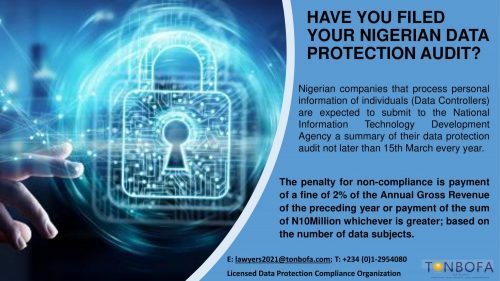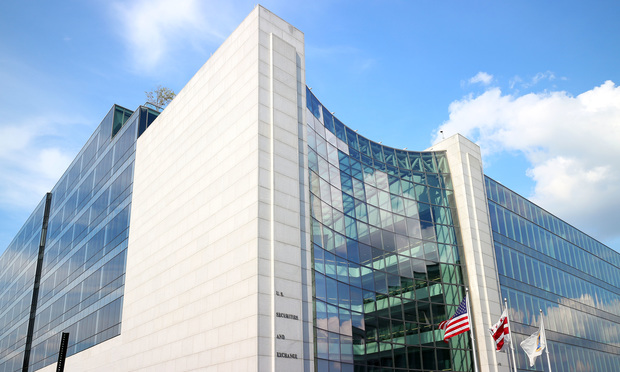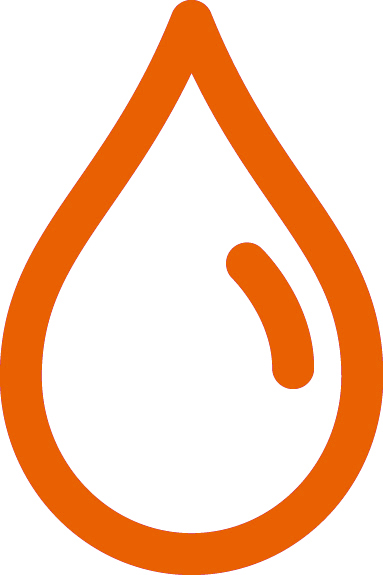Is your business model based on some of your team members being independent contractors/contract staff and not employees? Then you may need to reassess your risk to those team members being called employees if your agreement goes before a court that can be persuaded by the UK Supreme Court Ruling in Uber BV case. Read
Under Nigerian Privacy laws, a personal data breach means a breach of security leading to the accidental or unlawful destruction, loss, alteration, unauthorised disclosure of, or access to, personal data. The Nigerian Privacy regulator, in its first enforcement action, has fined a fintech company for personal data breach- Read more
The EU has passed regulations mandating disclosure as regards sustainable investments to protect investors from financial products and companies that claim to be sustainable but are not. These EU regulations will affect financial market participants globally.
THE CBN REGULATORY FRAMEWORK FOR OPEN BANKING IN NIGERIA The Central Bank of Nigeria “CBN” on 17 February 2021 issued the Regulatory Framework for Open Banking in Nigeria (‘the Framework’) which aims to promote the sharing and leveraging of customer-permissioned data by Banks in order to build solutions and services that provide efficiency, greater financial
CHANGES OCCASIONED BY THE FINANCE ACT 2020 The President Buhari on 31st December 2020 signed into law the Finance Act 2020. The Act amends among others the Capital Gains Tax Act, Companies Income Tax Act, Industrial Development (Income Tax Relief) Act, Personal Income Tax Act, Tertiary Education Trust Fund (Establishment Etc.) Act, Custom and Excise
The Securities and Exchange Commission “SEC” on 12 February 2021 issued a press release “the Press Release” to address comments on a perceived policy conflict between the SEC Statement on Digital Assets and their Classification and Treatment of September 11, 2020and the Central Bank of Nigeria “CBN” Circular of 5February 2021 which effectively prohibits financial
An Introduction A Gas Sale and Purchase Agreement (GSPA) is the key agreement detailing the sale and purchase of a quantity of natural gas. Natural Gas is an invisible product and is a major source of clean energy. Natural gas can either be associated gas or non-associated gas. Associated gas: Natural gas that comes from
The Central Bank of Nigeria “CBN” on 5 February 2021 published a circular “2021 Circular” which it titled Letter To All Deposit Money Banks, Non-Bank Financial Institutions And Other Financial Institutions. By the 2021 Circular, financial institutions are being prohibited from supporting or aiding cryptocurrency transactions The CBN further requires regulated financial institutions to identify
The Lagos Internal Revenue Services (LIRS) on the 29th day of January 2021 issued a Public Notice extending the deadline for the filing of Employer’s Annual Return. This extension is stated to last for 2 weeks starting from the 1st day of February 2021 to the 14th day of February 2021. The extension was granted
The Central Bank of Nigeria (CBN) on 13 January 2021 published a Framework on Regulatory Sandbox Operations (‘the Framework’) for a formal process to conduct live tests of new, innovative products, services, delivery channels or business models in a controlled environment subject to appropriate conditions and safeguards. The Framework prescribes the standards of operations of
The Central Bank of Nigeria (CBN) on 9 December 2020 published the Circular on New License Categorisations for the Nigerian Payment Systems (NLC Circular), which has made it easier to identify the licences that apply to the Nigerian Payments System. Under the NLC Circular payments system licensing has been streamlined into four: Switching and Processing;
AfCFTA AGREEMENT SUMMARY & PROTOCOLS AGREEMENT ESTABLISHING THE AFRICAN CONTINENTAL FREE TRADE AREA The Agreement establishing the African Continental Free Trade Area was formulated in line with the Abuja Treaty aimed at integrating African’s market by having a continental market with a free movement of persons, capital, goods and services which are crucial for deepening
Special Purpose Acquisition Companies“SPACs” also known as blank check companies are duly registered public limited companies, formed to raise capital in an Initial Public Offering (“IPO”) with the purpose of using the proceeds to acquire one or more unspecified companies, businesses or assets (target companies) to be identified after the IPO. Spacs have been used
USING SIDE POCKETS FOR ILLIQUID FUND ASSETS Hedge funds are a type of mutual funds that employ hedging techniques to minimize risk. There are no laws or rules that apply specifically to hedge funds in Nigeria. They are administered by professional investment managers and are not widely available to the public in that their investors
VENTURE CAPITAL FINANCING IN NIGERIA – AN OVERVIEW It is common knowledge that all businesses need finance or capital to start up, run or expand their businesses. Many Nigerian entrepreneurs, small businesses and companies do not have sufficient funds to finance their businesses or projects and may have to seek financing outside of themselves. Companies
NERC MAKES MYTO COST-REFLECTIVE Introduction Further to the authority given under Section 76 of the EPSR (Electric Power Sector Reform) Act 2005, the Nigerian Electricity Regulatory Commission (NERC or the Commission) established a policy for determining electricity tariff in the Nigerian Electricity Supply Industry (NESI) and subsequently issued a Tariff Order called the Multi-Year Tariff
VAT on Leased Properties In Ess-ay Holdings Limited v. FIRS (Federal Inland Revenue Services), the Tax Appeal Tribunal “TAT” ruled that under the VAT Act, VAT is paid on the supply of goods and services and a lease is neither a good or service and therefore not subject to VAT. In reaching its decision, the



















